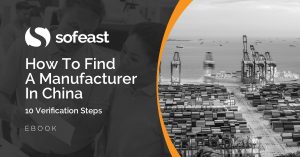Expats living in China tend to be bothered by many aspects of the local culture. Here are a few common questions I was asked many times:
- How can they be so self-centered and so unaware of what happens around them when they drive, walk, etc.?
- Can you believe some factories even make fake eggs and fake rice??
- Why are they so cynical about what we consider ‘best practices’?
I just finished a book that lists and dissects a long list of these Chinese tendencies that we find distasteful: What’s Wrong with China by Paul Midler, who also wrote Poorly Made in China a few years ago.
Here are 3 insights that I thought would be interesting to most readers.
1. The tendency to always have a “second business” to fall back on in case of need
In itself, it is quite a sensible strategy. As an investor, I want to diversify my assets. That’s a great way of managing risks. Well, why not do it with your sources of income too?
Chinese people are more likely to be tempted by a second, and even a third, source of income. Sometimes it just means setting up a Taobao shop and operating it at night. Sometimes it means diverting some business from one’s current employer to a company under one’s wife’s name. I have seen or heard of, both these extremes numerous times.
Have you ever wondered why some suppliers are so eager to start working with your direct competitors? If one of you goes belly up, they will still get business from your market.
2. The tendency to look for kickbacks wherever possible
I don’t think it’s a stretch to write that many Chinese in many business/work circumstances try to get a kickback.
It is certainly true of most purchasers and most ‘independent’ sourcing agents.
And apparently it was the case one century ago — Westerners were calling it the “squeeze”. One common strategy for a European or American household was to appoint one local to manage the cook, the maid, and so on. This way, only that ‘manager’ was getting kickbacks for himself and was watching over all the others. In the alternative situation, every employee was getting a ‘squeeze’ for herself and it ended up much more costly!
3. The tendency to avoid setting up and following systems
I wrote before about the way certain consultants are routinely hired by manufacturers to “make paperwork look good”, and not for improving one’s organization. It is the sad reality in the majority of companies here.
Midler writes, “informality is the essence of Chineseness”. He suggests that business owners and managers purposefully avoid setting up systems, for various reasons. I am still digesting this one… Not 100% sure what it comes down to, at the root.
4. The drive to play a game and figure out how to take advantage of the rules
If you set a rule that only business expenses supported by an official ‘fapiao’ are reimbursed, you will get plenty of fake fapiaos. If you set a maximum amount of reimbursement per day, employees will claim that amount every time they go out. This sounds stereotypical but it is quite common.
Midler points out that some marketing agencies have had great success designing promotional schemes with very elaborate rules. His interpretation: consumers very much enjoyed the game of figuring out how to get the discount coupons!
—
This book is, by far, the most insightful analysis of the Chinese culture that I have ever read. It is well written and well documented.
Granted, it mostly looks at “cultural failings” and its analysis clearly comes from a Westerner’s mind. It is one-sided. But that premise is clearly conveyed by the book’s title, so there is no surprise.
I think this book will still be pertinent in 30 years. Just like Masaaki Imai’s ‘Kaizen’ is still considered an important book, despite the author’s clear belief that Japanese culture is superior.
I am unsure about the relevance of certain comparisons made by the author. For example, are most factory owners ‘sociopaths’? Or has their unethical behavior been molded by the environment they operate in? They seem well integrated into the local society.
One thing is for sure: reading this book will get your thinking juices flowing!
Are you wondering how to find a manufacturer in China who is well-suited to your needs and can also deliver on their promises?
Sofeast has developed 10 verification steps to help you find the right manufacturer. They’re shared in this FREE eBook: “How To Find A Manufacturer In China: 10 Verification Steps.”
It covers:
- Background checks
- Manufacturing capabilities
- Quality system auditing
- Engineering resources
- Pricing, negotiation, & contracts
- …and much, much more
Just hit the button below to get your copy:


I just finished the new Midler book in 1 day of steady reading. I will add my STRONG endorsement. Any Westerner doing business in China needs to read this… reflect… and decide what countermeasures they should undertake.
I was particularly convicted by Midler’s repeated references to how people like me — supposed experts in China sourcing– have rationalized, or even accepted, many of these practices.
I will be doing a self-examination, going through the book a second time more carefully.
Yes, this is a book that makes people pause and re-think certain things. Totally agree!